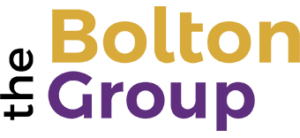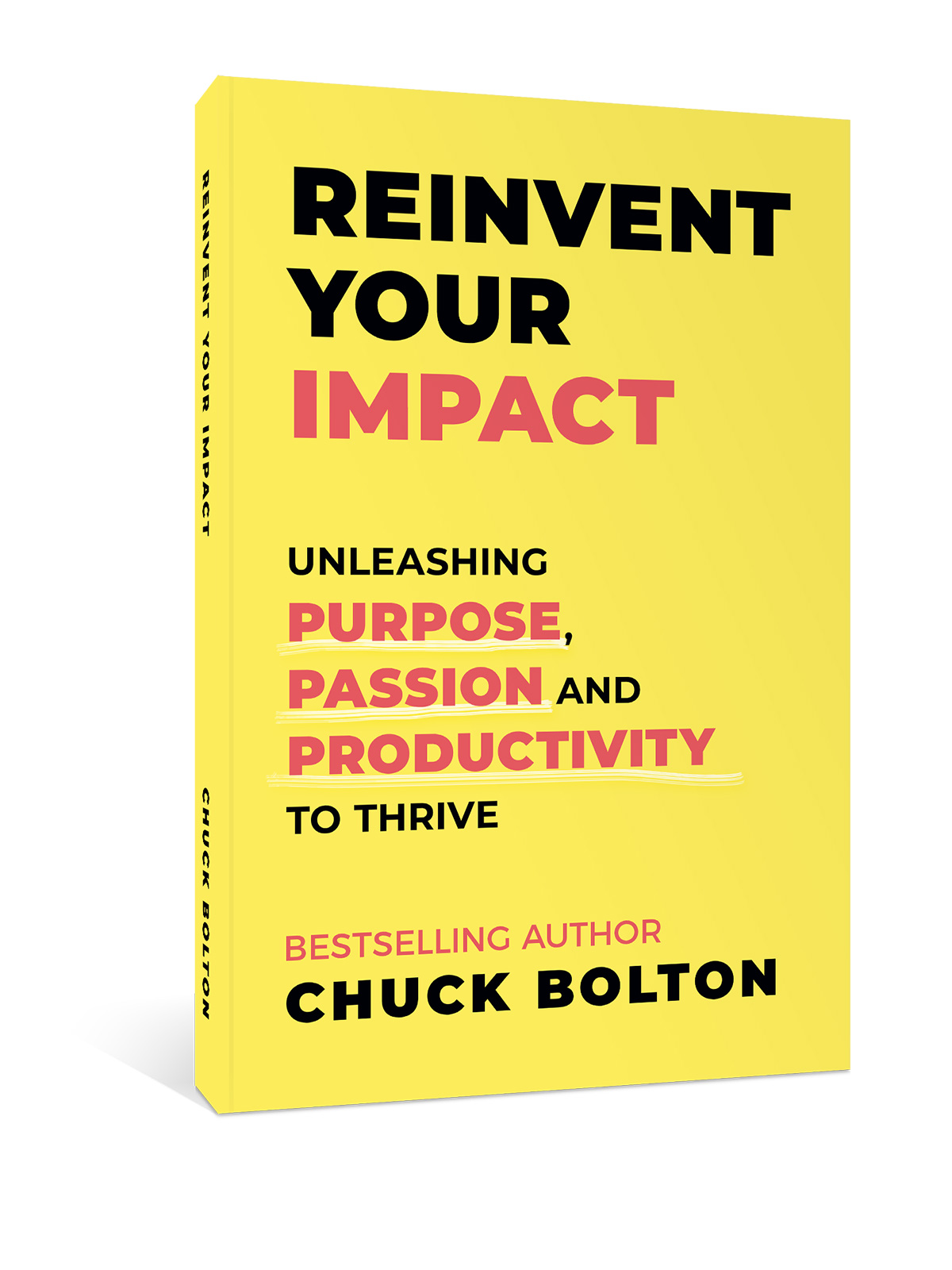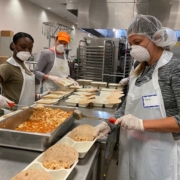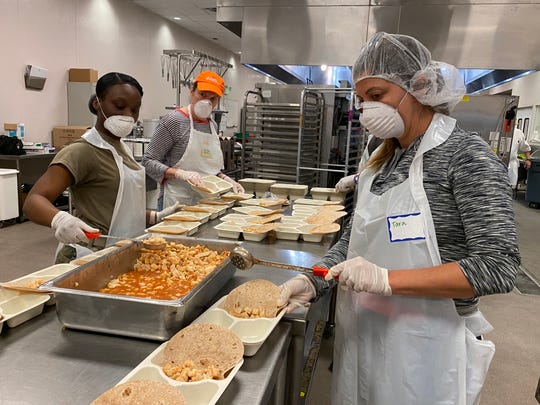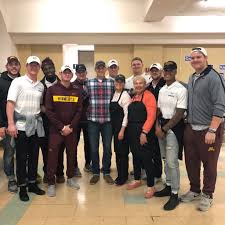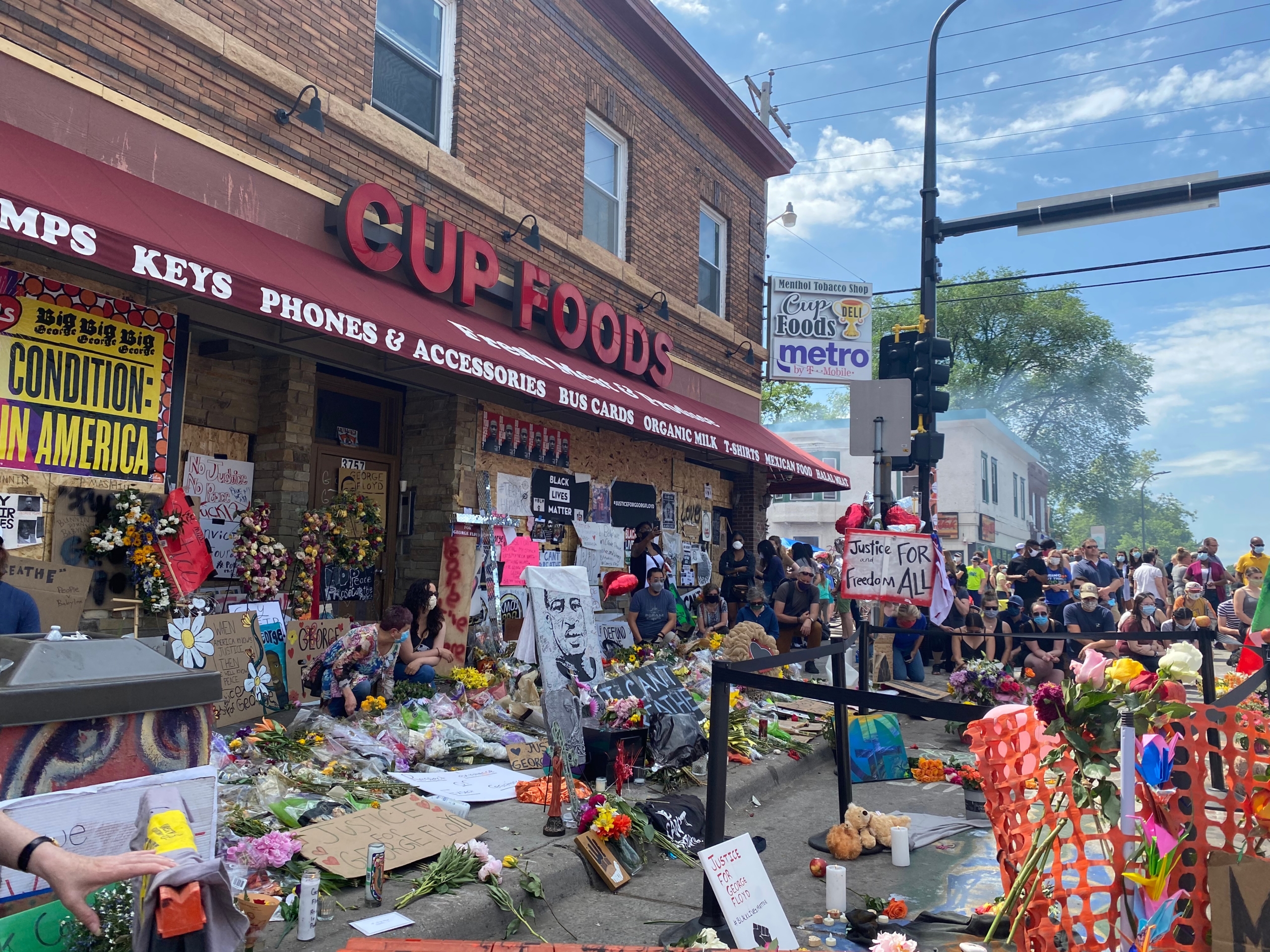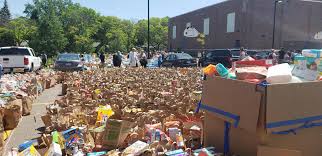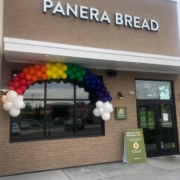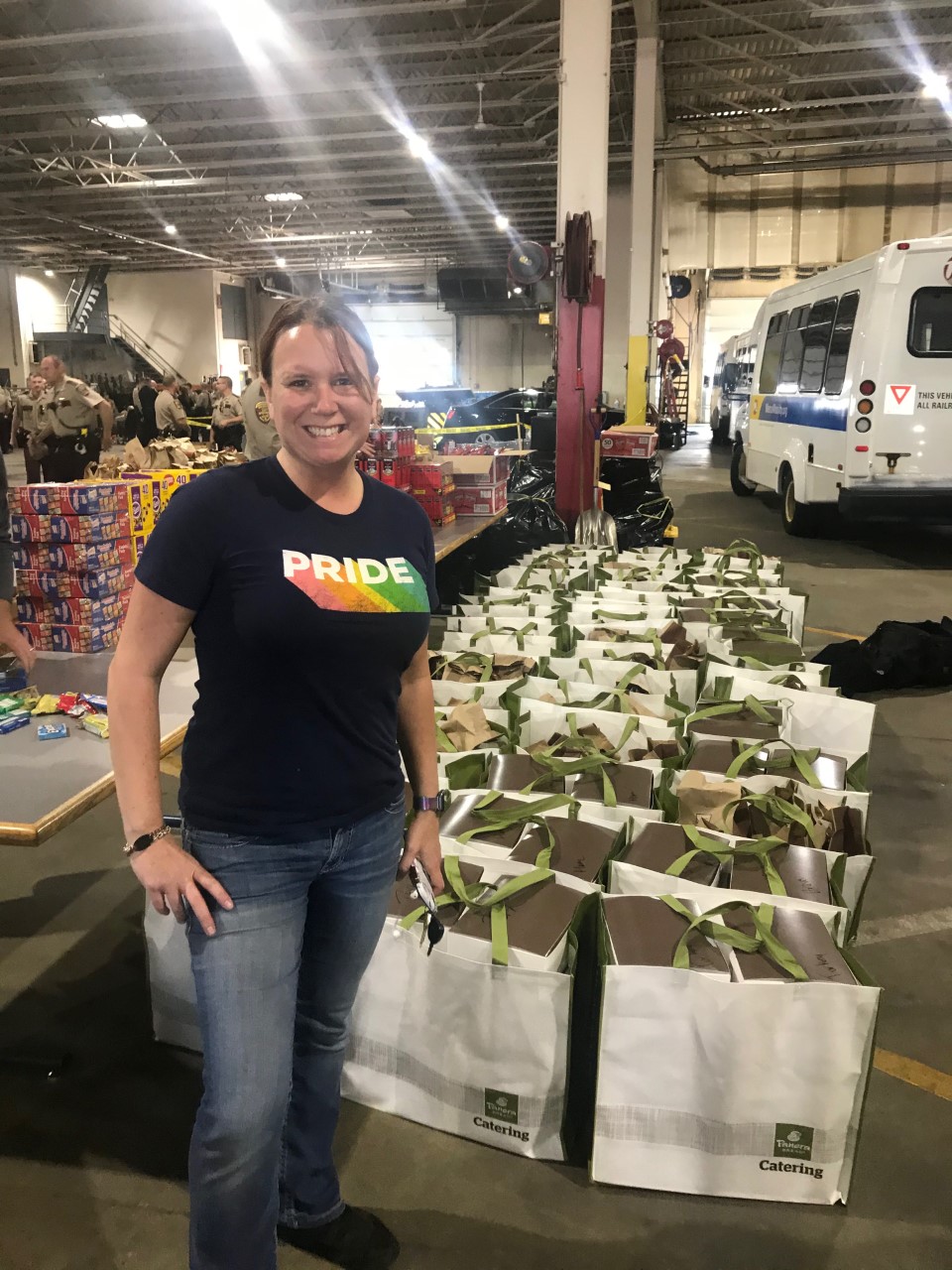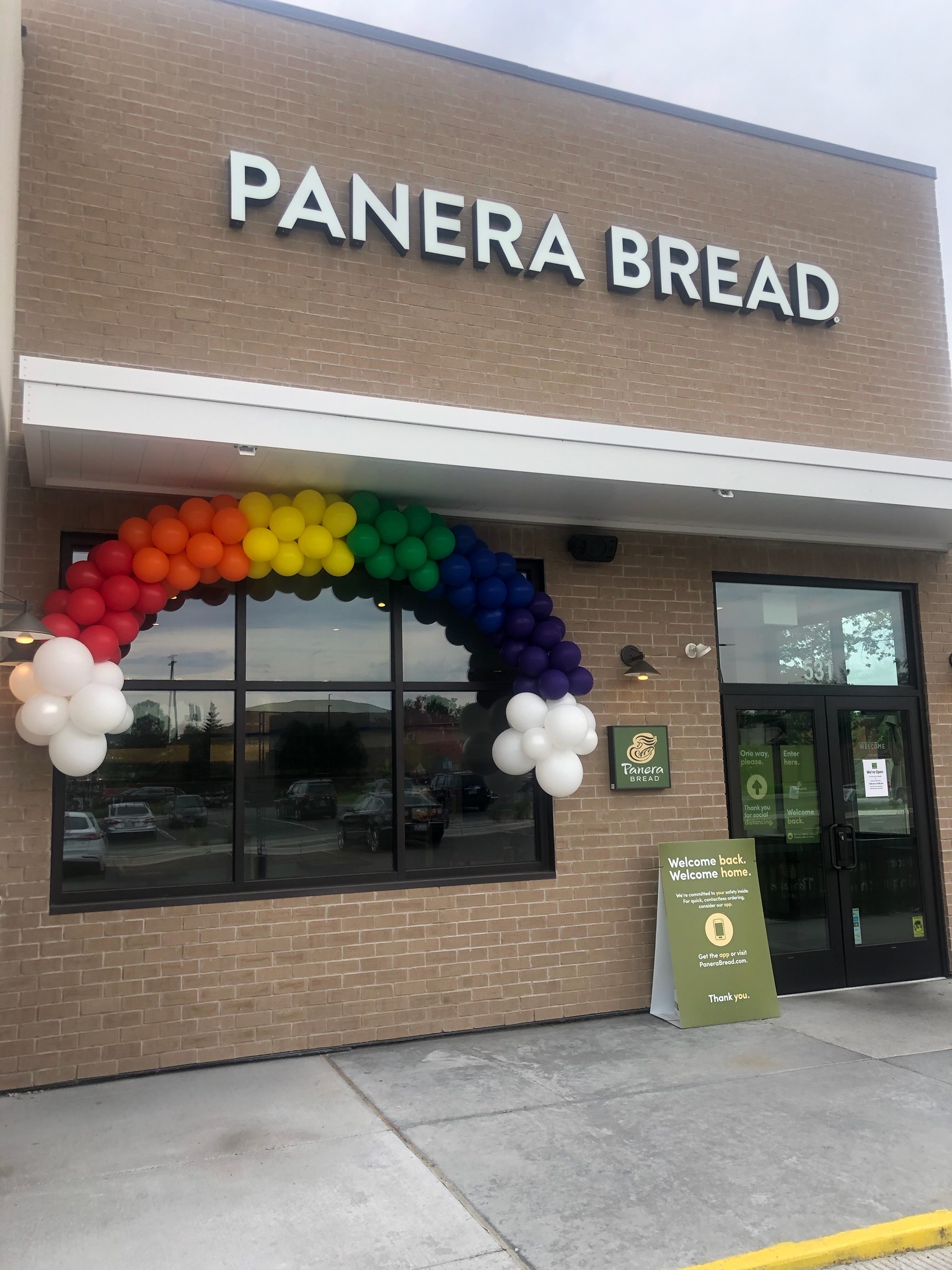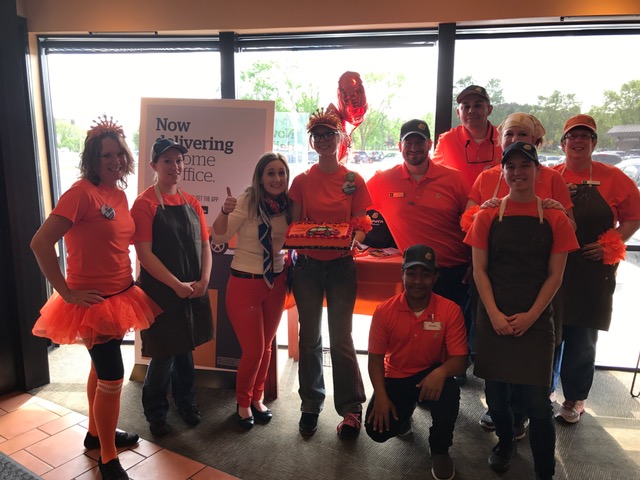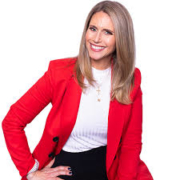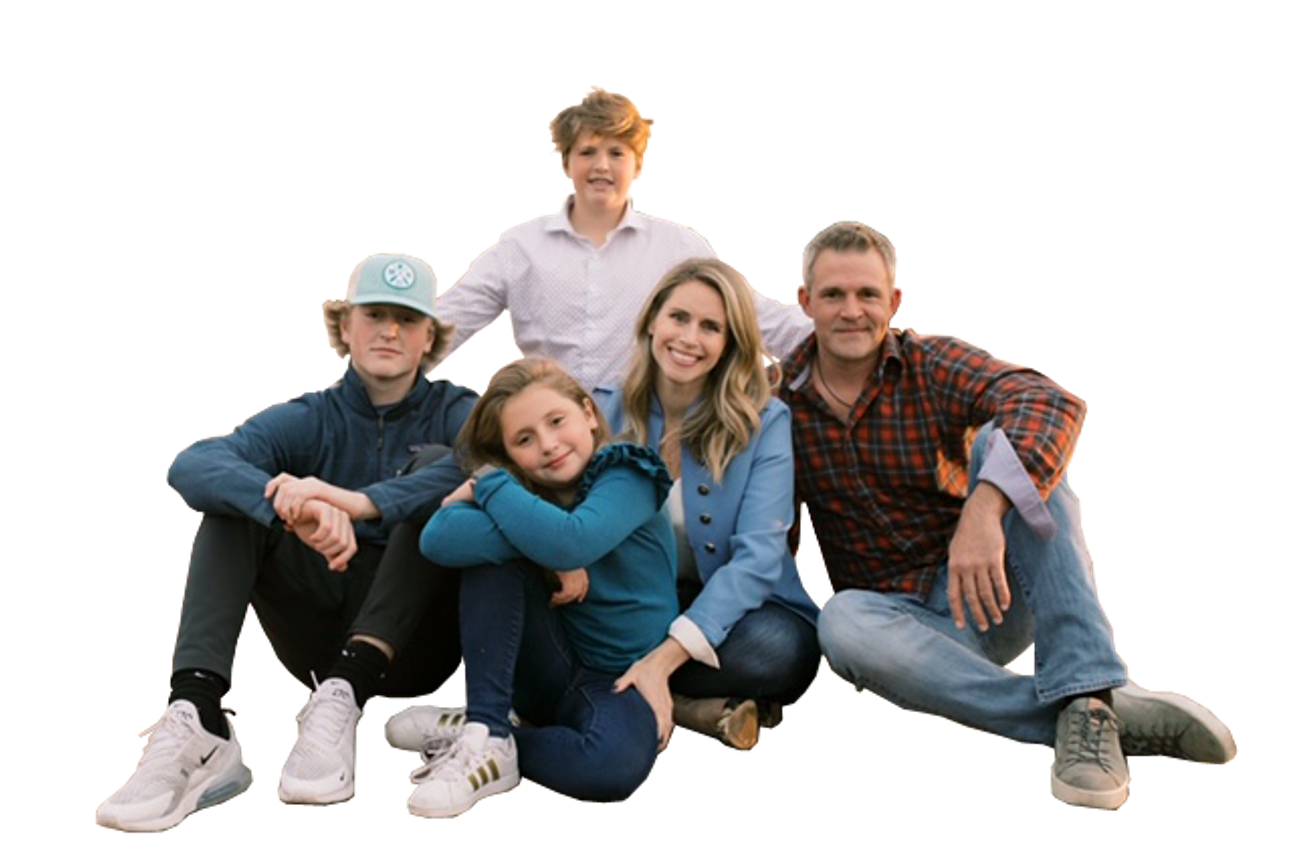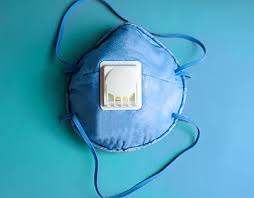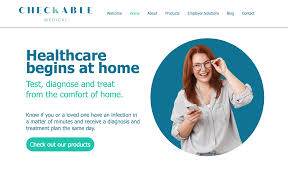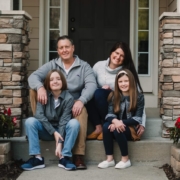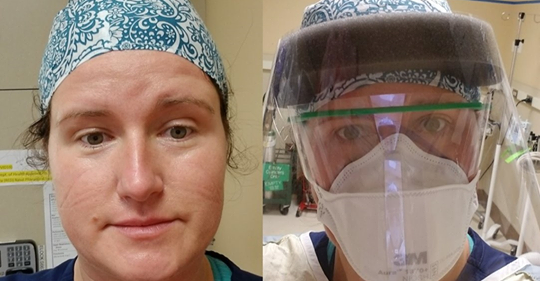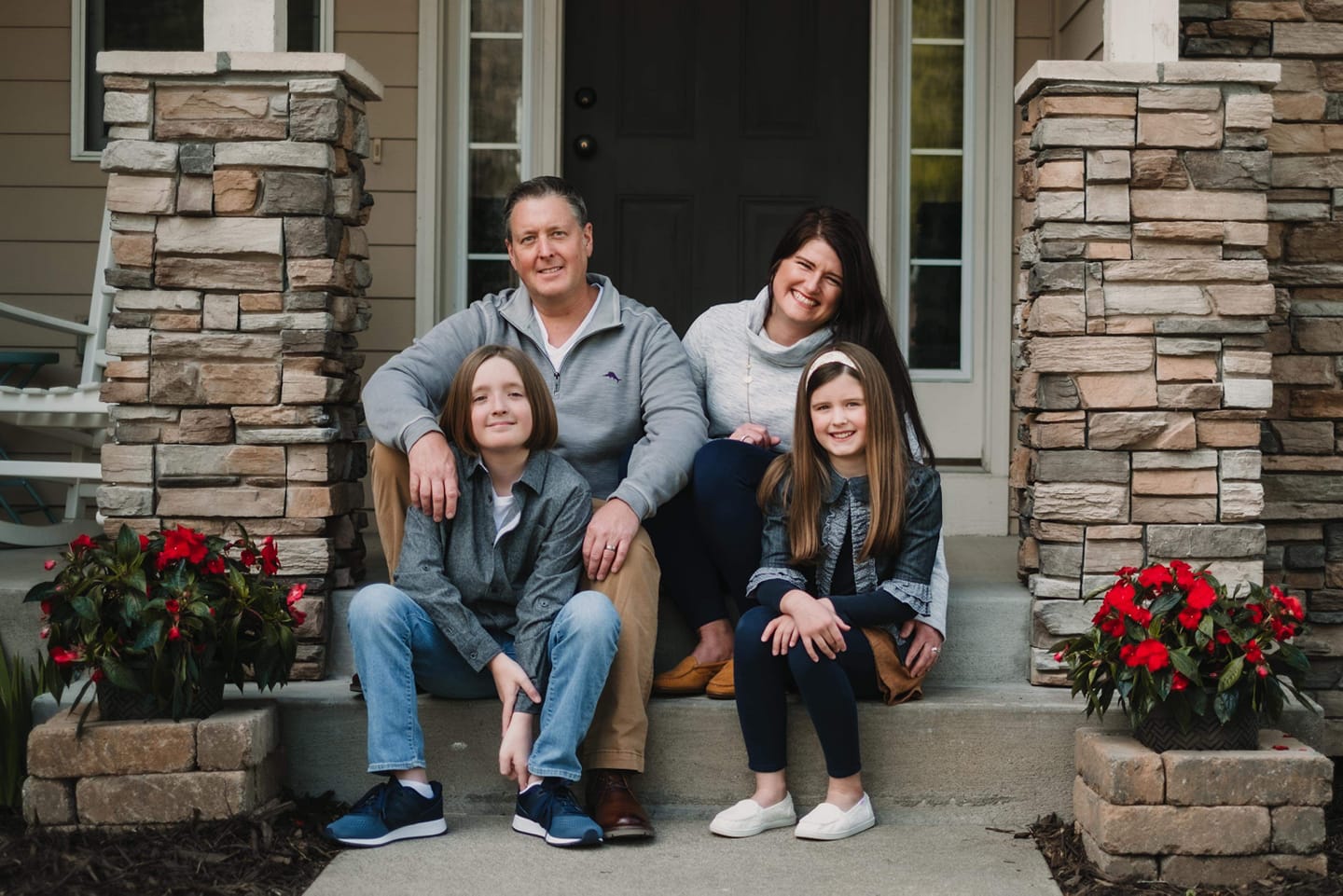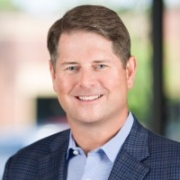19 Fighting COVID-19: Unsung Heroes Creating Impact During the Pandemic and Unrest
As the COVID-19 crisis has spread across the country, it has disrupted every aspect of American life. During this perilous time, we all seek inspiration from people who capture our hearts and minds, who show us the path through the storm. People who are creating an impact.
Now, combined with a heightened awareness of the injustice and indignities African Americans have suffered during 400 years of racial discrimination following George Floyd’s death and the ensuing protests, we find ourselves in the grips of two pandemics that have become inextricably intertwined.
Over the past three months, I’ve learned the stories of nineteen unsung heroes in Minnesota. Ordinary people, like you and me, who are leading with hope and purpose, making a positive impact in our state and nation, in the midst of the COVID pandemic and social unrest.
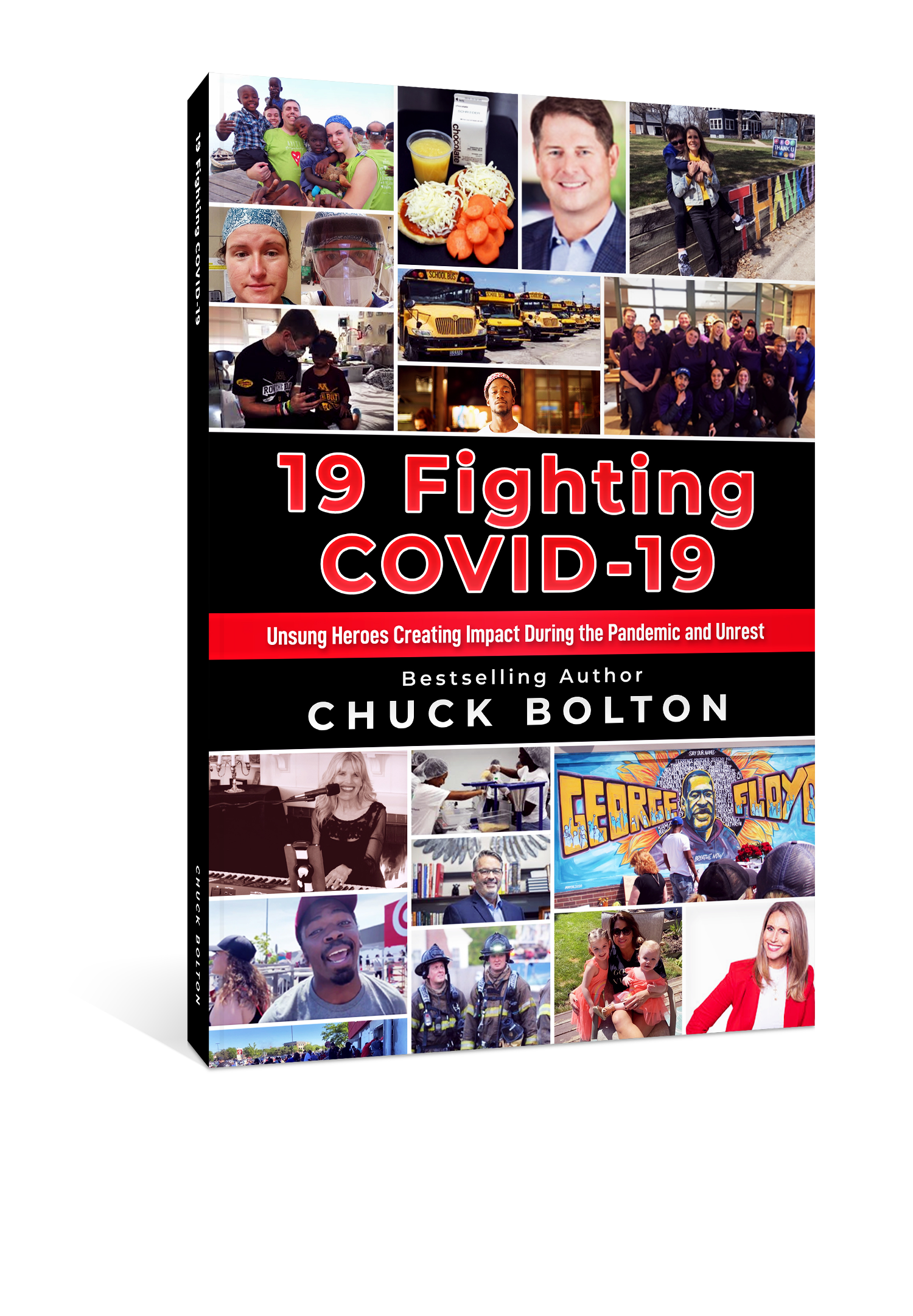 I’m releasing a new book today, June 29, 2020 – 19 Fighting COVID-19: Unsung Heroes Creating Impact During the Pandemic and Unrest – where you will discover the stories of these inspiring Minnesotans. I hope their stories will fill you with optimism, hope, and encouragement. In our volatile and uncertain world, if ever there was a time for a book about resilient people who are making an impact, now is the time.
I’m releasing a new book today, June 29, 2020 – 19 Fighting COVID-19: Unsung Heroes Creating Impact During the Pandemic and Unrest – where you will discover the stories of these inspiring Minnesotans. I hope their stories will fill you with optimism, hope, and encouragement. In our volatile and uncertain world, if ever there was a time for a book about resilient people who are making an impact, now is the time.
Thank you in advance for considering a purchase. With your purchase, you’ll make a contribution to fighting food insecurity in Minnesota. 100% of the author’s commissions will be donated to Second Harvest Heartland and Loaves and Fishes, so they can continue to feed those most in need during these times.
Here’s the link to buy the book: https://www.amazon.com/19-Fighting-COVID-19-Creating-Pandemic-ebook/dp/B08BCNVWK8/ref=tmm_kin_swatch_0?_encoding=UTF8&qid=&sr=
Here’s a summary of the people and their stories within the book:
- The story of an award-winning hairstylist based in Edina who created customized DIY coloring kits with instructions for her clients and delivered from a socially safe distance with a wave from her and her young daughters, while salons were in shut-down mode. Her purpose is to “Help others look and feel great, and uplift their happiness, confidence and self-image.” She’s the loving image shaper. Her name is Alli Swanson of Sloan’s Beauty Bar.
- The story of a Maplewood-based intensive care unit nurse, whose purpose is “To do anything I can do – physically, mentally, spiritually, emotionally – to help my patients feel better.” She’s the one who takes care of COVID patients. Who is in constant communication with the contact person of the family. She’s the one who is constantly checking the ventilator settings and determining if they are getting better or not. Of being there for those very ill, helping the family say their last goodbyes by iPad and being there with the patient until they take their last breath, so they do not die alone. That’s Tiffany Wolfsberger of Regions Hospital.
- The story of a woman, her 8-year-old son and family who created a colorful eight circle THANK U sign on the retaining wall of their Edina home, each circle representing a COVID-19 hero group. There is a circle dedicated for doctors, nurses, truckers, grocery workers, police, firefighters, teachers and maintenance workers. And you can buy the signs and put in the yard of your hero. Or buy t-shirts. The money goes to food banks. That’s Heather Heier Lane.
- The story of a Bloomington man with a servant’s heart who uses his gifts of empathy and connectedness to listen to and encourage at risk-teens with Zoom calls and connects with several older people who are isolated in nursing homes weekly. His name is Pat Siebenaler.
- The story of a Hopkins woman who having found herself at her children’s pediatrician for the third time in one week, one time each for each of her three kids, to be tested for strep throat. She was so frustrated she started up a company to create a home-administered strep test. Earlier this year, the company pivoted to create a home-administered diagnostic test for COVID-19 to assist others in determining if they’ve been exposed to the virus or have developed immunities against the virus, potentially helping us to get back to work more quickly. Her purpose is to serve others. That’s Patty Post, CEO of Checkable Medical.
- The story of a Plymouth man who with a few friends from church, created a website and process to connect those who are higher-risk people with a person of lower-risk in their same community for remote friendship, conversation and help with the delivery of groceries or prescriptions. His purpose is “To make life better for others. We’re all put here for a reason, to serve others as best we can.” That’s Jeff Johnson, Hennepin County Commissioner and founder of Northstar Neighbor.
- A St. Paul Fire Department fire captain whose purpose is to “mitigate emergencies and return things to a safe state” and how the job of a firefighter and emergency responder has changed since COVID-19 and how he and his crew had to reinvent how they responded to and fought fires during May 28 & 29, when St. Paul experienced 55 arson-set fires, during the rioting and unrest. That’s St. Paul fire captain John Wolfsberger.
- The story of a Plymouth-based privately-held medical device company that makes pulse oximetry products -a critical clinical therapy in treating COVID-19 patients – to measure oxygen saturation levels in the blood. The demand for their products has risen 10-fold so they are operating around the clock, struggling to manage a global supply chain, to meet the demand for their products. During their ramp up, they also had an employee who was MN’s second diagnosed person with COVID-19. No other ees contracted the virus and happily, the person who contracted the disease while traveling for work in Europe is now fine and is back to work. Their CEO’s purpose is to “Enable people to live purposeful lives, that positively impact others in the chaos of life.” Is this ever the time and place to live purposefully! That’s Nonin Medical’s CEO Dave Hemink.
- Or how a young 21-year-old man whose purpose is “being a beacon of light when others are hopeless” who along with his friend from Shoreview, traveled to the looted Target store on Lake Street on Saturday, May 30 to clean the store of water sludge and debris. Their clean-up efforts were seen by others and before you knew it, over 1000 people joined in, creating assembly lined, to sweep & shovel out and pick up the mess fill garbage bags and arranged for a refuse company to haul the mess away. I forgot to mention. This young man saw Minneapolis suffering and without hope and decided to do something about it. He drove 8 hours from Bradley U in Peoria, IL, to Shoreview, his friend’s parents’ home, so he could help out. He had never been to MN before but knew he had to do something – because he is a beacon of light when others are hopeless. His name is Pierre Paul.
- Of a small group of volunteers in south Minneapolis who came together literally overnight, convinced the owner of a hotel that was shuttered due to COVID-19, to allow 200 homeless people to take refuge in the hotel, in less than 24 hours, after the city razed an encampment they were staying with bulldozers, literally stranding them between looters, the national guard with nowhere to go during the curfew of May 29. This group of volunteers is coordinating meal service, mental health services, first aid, harm reduction support and housekeeping services. They are doing this in a horizontal way, anonymously, with no designated leader. They call this the Sanctuary Hotel.
- Of a woman who is a nurse practitioner in the neurosurgery intensive care unit of a large Minneapolis hospital who treats and cares for patients who have had strokes, traumas to the spine and other brain traumas. Now in the COVID-19 world we live in, family members are not allowed to visit their loved ones in the hospital. With her patients who’ve suffered cognitive injuries and traumas, her continuous communication with family is more essential than ever before. She sees herself as creating impact by being a source of light during a troubling time for patients and family members, who cares and feels deeply. That’s UofM’s Suzie Shane.
- Of a man in St. Louis Park who started up a non-profit organization that provides free financial counseling and legal services and coaching to women who have recently become widows. His purpose is “to provide safe passage for others down the river of life.” He has also launched a new bestselling book in April, The Legacy Planning and Conversation Guide: The Workbook for End-of-Life Planning, a playbook to help singles and couples to get their affairs in order before they die. His name is Chris Bentley, founder of Wings for Widows.
- Of the woman in Buffalo who is responsible for overseeing the safe transport of over 5000 students to and from school for the Buffalo/Hanover/Montrose school district. Her drivers cover a 157 square mile every school day. Her purpose – to get student to and from school safely and on-time – abruptly shifted in mid-March. Now, it’s to make sure the kids get fed. Since school shut down, her team has delivered over 150,000 meals for those in need. She’s making a huge impact. That’s Kimi Paumen.
- The story of a 20-year old man who is a 5X cancer survivor, is a college student and is a Big 10 collegiate football player. Last July 19, this young man delivered the keynote speech at the Big 10 Football Kickoff Luncheon in Chicago. He lives daily by his impact declaration of: Wake up! Kick Ass! Repeat! He also coaches and encourages families and kids who are stricken by cancer and has been a big fixture at Children’s Masonic Hospital – that’s Casey O’Brien, the placeholder for the University of Minnesota Golden Gophers football team.
- The story of an Area manager for 9 bakeries whose purpose is to help everyone around her, “Feel Better and Be Better.” During the pandemic, they’ve had to reinvent their model, serve today’s customers differently, look to the future for what they want to be, while they serve first responders at a moment’s notice and she works to develop women leaders, supports the LGBTQ community and works with local food banks to distribute today’s left over baked goods. Favorite story is about how she prepared 900 box lunches for the National Guard on May 30 with less than 3-hours notice from 8 stores. That’s Panera Bread’s Marie Benesch.
- The story of the Hanover elementary school music teacher who in addition to teaching her students via distance learning, performs on keyboard and sings Virtual Music events on Facebook Live for thirteen straight Friday nights while the live music venues have been closed. Her purpose is “Bringing joy to young and old by sharing songs that inspire.” Each week it is a new genre and new set of songs. She averages 5000 global viewers each week and was recognized by Governor Walz during his May 7 COVID update as his Feel-Good Story. That’s my beautiful and talented wife Mary Bolton.
- The story of a man who doubled pivoted his business. At the outbreak of the COVID crisis, he pivoted his Minneapolis distillery to make hand sanitizer. When his distillery was damaged during the looting and arson following the death of George Floyd and the protests, he created a pop-up food shelf to feed the community. That’s Chris Montana of Du Nord Craft Spirits.
- The story of those in the fight to battle food insecurity. Second Harvest – the nation’s second largest food bank, whose purpose is “To end hunger together.” Before the crisis 1 in 11 Minnesotans as well as 1 in 8 kids didn’t know where their next meal was coming from. Today, the needs are off the charts. They are seeing new faces. Our neighbors, colleagues and friends. They are really pumping to meet demand. They need donations – they can make $1 into 3 meals. Allison Toole CEO and leading the charge at Second Harvest.
Loaves and Fishes is the largest “open to the public” meal program in MN, serving free healthy meals to Minnesotans in need. The requirements for meals since the coronavirus pandemic have gone from 3500 meals per day to 12000 meals daily – triple their regular workload. They’ve shifted their meal from congregate dining to takeaway meals during the pandemic. Cathy Maes is Executive Director of Loaves and Fishes.
As I’ve had met and interviewed these people, during this uncertain time, during two pandemics – the COVID-19 pandemic and the racial injustice pandemic – which has been going on 400 years but has just been heightened for many of us the last four weeks – I am encouraged. I see hope. I see people taking care of others. Operating with great purpose, with passion and making an impact. While in many ways, we’re dealing with more uncertainty than certainty, I’m seeing more humanity in people, by and large.
That’s encouraging. That’s inspiring and motivating. That’s inviting to all of us to look for ways we can each create greater impact. So we can serve others and thrive. I know we’ll emerge from the adversity – that’s what Minnesotans always do. The question is will you be making greater impact – or not? The answer is up to each of us! It’s up to you, folks.
Here’s the link to buy the book: https://www.amazon.com/19-Fighting-COVID-19-Creating-Pandemic-ebook/dp/B08BCNVWK8/ref=tmm_kin_swatch_0?_encoding=UTF8&qid=&sr=
About the Author
Chuck Bolton is a coach and advisor to CEOs and a five-time bestselling author. In April 2020, he launched a new book, Reinvent Your Impact: Unleashing Purpose, Passion and Productivity to Thrive, which became an international bestseller in the USA, Canada and Australia.
Since 2000, Chuck has shown his clients how to reinvent their impact and create massive value through his coaching firm, The Bolton Group LLC. He loves inspiring and encouraging others to become their best so they can make their unique difference in the world.
Chuck has coaches and consults with leaders at Abbott, Boston Scientific, Cantel Medical, Hollister, IQVIA, KMT Medical, Medtronic, Nonin Medical, Optum, Performance Health, United Healthcare, Vyaire Medical and many more. In his prior corporate career, Chuck last served as group vice president, human resources, Boston Scientific.
For more information: https://theboltongroup.com
100% of the author’s proceeds from book sales are donated to Second Harvest Heartland and Loaves and Fishes to fight food insecurity in Minnesota
Here’s the link to buy the book: https://www.amazon.com/19-Fighting-COVID-19-Creating-Pandemic-ebook/dp/B08BCNVWK8/ref=tmm_kin_swatch_0?_encoding=UTF8&qid=&sr=
